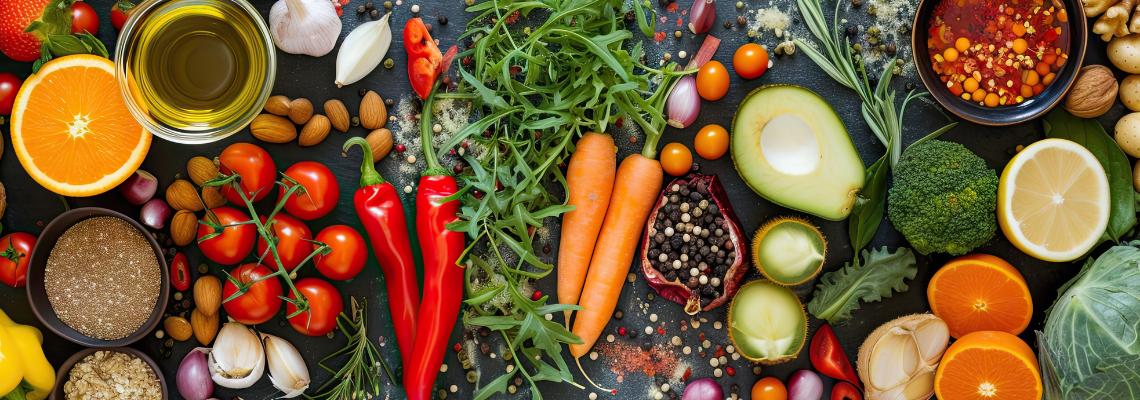21
2024
Iron-Packed Foods for Optimal Health

Iron, the unsung hero of our bodies, plays a crucial role in carrying oxygen to every cell. A deficiency can lead to fatigue, weakness, and a host of other health issues. While many reach for supplements, nature offers a plethora of iron-rich foods that can nourish and heal. As a macrobiotic nutritionist, I believe in harnessing the power of whole foods to restore balance and vitality.
Understanding Iron
Before we delve into the foods, it's essential to understand the two types of iron:
- Heme iron: Found primarily in animal-based foods like meat, poultry, and seafood, it’s easily absorbed by the body.
- Non-heme iron: Primarily found in plant-based foods, its absorption is influenced by various factors, including vitamin C.
A balanced macrobiotic diet incorporates both types of iron to ensure optimal absorption.
The Macrobiotic Approach to Iron Deficiency
In macrobiotic philosophy, iron deficiency is often linked to imbalances in the body. Consuming a diet rich in refined foods, excessive yin foods, and a lack of grounding yang foods can contribute to this deficiency. The focus is on restoring balance through whole, unprocessed foods, and mindful eating.
Iron-Rich Foods: A Macrobiotic Perspective
While meat is a rich source of heme iron, a macrobiotic diet emphasizes plant-based foods. Let's explore some iron-rich options:
1. Legumes:
- Lentils: A macrobiotic staple, lentils are packed with iron, protein, and fiber. They are versatile and can be incorporated into various dishes.
- Black beans, kidney beans, and chickpeas: These legumes offer a good amount of iron and are a great source of plant-based protein.
2. Dark Leafy Greens:
- Spinach, kale, and collard greens: These leafy powerhouses are rich in iron, along with other essential nutrients.
- Seaweed: A personal favorite, seaweed is an excellent source of iron, calcium, and iodine. I have highlighted seaweed in several of my Instagram posts.
3. Seeds and Nuts:
- Sesame seeds: These tiny seeds are a powerhouse of nutrients, including iron. Tahini, made from sesame seeds, is a delicious and nutritious spread.
- Pumpkin seeds, flaxseeds, and chia seeds: These seeds offer a good amount of iron and are rich in omega-3 fatty acids.
- Almonds and cashews: These nuts provide iron and healthy fats.
4. Whole Grains:
- Brown rice, quinoa, and millet: While not as high in iron as some other foods, whole grains provide a steady release of energy and essential nutrients.
5. Dried Fruits:
- Apricots, raisins, and dates: These dried fruits are a convenient and delicious way to boost iron intake.
Enhancing Iron Absorption
To maximize iron absorption, consider these tips:
- Pair with vitamin C: Vitamin C enhances the absorption of non-heme iron. Enjoy your iron-rich foods with citrus fruits, bell peppers, or tomatoes.
- Reduce inhibitors: Tannins in tea and coffee can inhibit iron absorption. Enjoy these beverages between meals.
- Fermented foods: Incorporate fermented foods like miso, tempeh, and kimchi into your diet. They enhance digestion and nutrient absorption.
- Cook in iron cookware: Cooking acidic foods like tomatoes in iron cookware can increase their iron content.
Iron Deficiency and Other Health Conditions
Iron deficiency can often be a symptom of underlying health issues. A macrobiotic nutritionist can help identify and address these imbalances. Some common conditions linked to iron deficiency include:
- Anemia
- Thyroid dysfunction
- Digestive issues
- Fatigue and weakness
Signs You May Be Iron Deficient
If you're experiencing any of these symptoms, it's essential to consult with a healthcare professional for a proper diagnosis:
- Fatigue
- Cold at extremities (hands and feet)
- Unwanted cravings
- Frequent headaches
- Weakness
- Poor appetite
- Shortness of breath
- Pale skin
Iron deficiency is a common problem, but it can be effectively addressed through a balanced macrobiotic diet. By incorporating iron-rich foods, enhancing absorption, and addressing underlying imbalances, you can nourish your body and restore vitality. Remember, sustainable health is a journey, and making gradual changes to your diet can lead to significant improvements.
